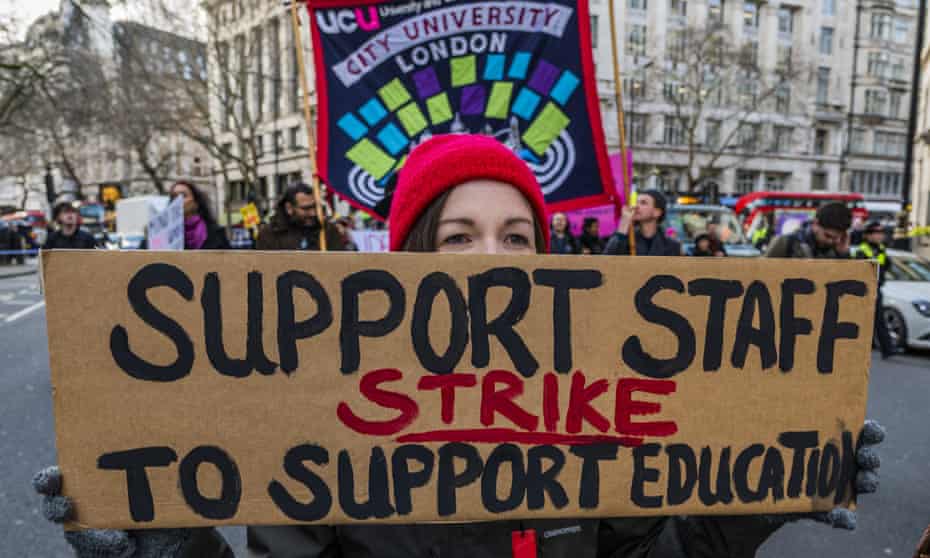Media VS Labour Action

By Anisah Mahamoud, BA International Relations
It is clear that the media has everlasting impacts on the manner in which society views itself. It acts as a mirror in the sense that it is usually the only outlet that provides daily information on the actions of society. This signifies the importance of giving an accurate depiction and highlights the responsibility of journalism to deliver this outcome. Young people have always been diminished in the media, whether it is through a focus on their ‘addiction’ to social media or through patronising their influential role in political activism.
This is especially relevant in the students’ sphere today due to the University College Union strike from 1- 3 December. Headlines surrounding this topic focus on the disruption that students may face, omitting the reasons as to why they are occurring in the first place. Many give the impression that students across the country are in disagreement with the strikes, which isn’t the case, as there is immense support for strike action to eliminate pay discrimination for the academics at their institutions.
This sympathetic angle towards students that is taken in large newspapers is evidently superficial, as when Fridays for Future began the stance taken in the media was negative. Students were seen as being destructive towards their education, yet when UCU strikes happen the media paints them as victims of such a ‘harmful’ affair. Representing the upcoming strikes as something that is unfortunate undermines the objective of the strike as its purpose is to improve higher education. If demands are met this will have a ripple effect on the quality of education, thus highlighting the prevalence of the strikes.
University workers are facing a 35% cut to their annual guaranteed pensions. The UCU’s demands are a £2.5k pay increase; an end to race, gender and disability pay discrimination; and meaningful action to tackle unmanageable workloads.
The General Secretary of the UCU, Jo Grady has said ‘It is now in the gift of employers to avoid strike action, which is the outcome staff want as well.’ This calls attention to the necessity of the strike, or in fact the lack of any other option. Academics, alongside other university workers are placed in such a dire situation in which strike action is their only choice. The desperation of these highly skilled workers commentate on how fragmented society is in 2021 and it is the media’s responsibility to display this.
“Whenever strikes are covered in the media there is almost always a battle with a hero and villain in which one is victorious.”
Whenever strikes are covered in the media there is almost always a battle with a hero and villain, in which one is victorious. When a ‘fight’ is settled peacefully, the employer is congratulated, and the union is blamed when it does not. In the eyes of the public, these types of tales might operate against unions. When it comes to serious problems, this makes it difficult for unions to gain public support as a result of media coverage.
Media coverage has historically been anti-union and this political stance negatively impacts the success of any labour action. If the public are absorbing headlines with cynical connotations, support for these campaigns will decrease and the status quo will be constantly upheld. The purpose of the media is not to sway public opinion but to simply inform its consumers on events. This aim must not be construed as a tool to dismiss the importance of labour action, as that is detrimental to the improvement of conditions for the marginalised in society today.
Photo Caption: The Strikes extend into street marches as teachers and students demand better conditions for working and retiring (Credit: Guy Bell/Rex/Shutterstock).



